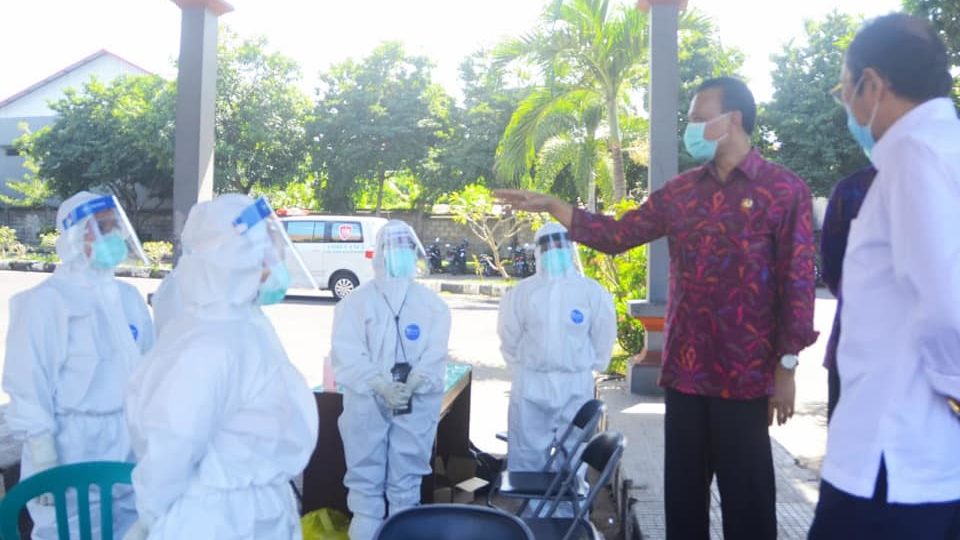Hundreds of market vendors from Pasar Galiran in Klungkung regency reportedly refused to undergo rapid tests for the coronavirus this week despite the traditional market being identified as a COVID-19 cluster, with some citing result inaccuracy and fears of stigma from their neighbors and peers.
Officials have temporarily closed Pasar Galiran since Monday after 32 market vendors tested positive for the coronavirus, prompting health officials in Klungkung regency to carry out free mass rapid tests for more than 1,700 market vendors there.
“Based on the latest report, 32 people are infected [with the coronavirus], and therefore we from the provincial government is in full support of Klungkung regency’s effort in mass tracing [COVID-19 cases],” Dewa Made Indra, regional secretary of Bali administration, said yesterday.
According to I Nyoman Suwirta, who heads Klungkung’s COVID-19 task force, some 250 people scheduled to undergo rapid tests yesterday did not show up, while 30 out of around 400 who did had received “reactive” results.
Suwirta said that when Pasar Galiran reopen tomorrow, market sellers will be expected to provide a statement of health based on the rapid tests, therefore enabling officials to identify those who have not undergone the required health screening.
I Nengah Wenten, a seller at Pasar Galiran, told a local media outlet that some of his fellow vendors were reluctant to undergo rapid testing out of fear of getting “reactive results.”
“Many people had ordinary flu, but got ‘reactive’ results. Sometimes they are healthy and they get ‘reactive’ [results]. It makes people afraid of doing the tests, because it is seen as inaccurate,” Nengah said.
Rapid tests are a preliminary screening test ordinarily deemed useful in countries with limited resources, and it detects the presence of antibodies in the blood of people believed to have been infected with COVID-19. There are concerns for both false-positives and false-negatives results from rapid tests, but “reactive” results in Indonesia are usually followed with PCR or swab testing, which is the recommended method to identify and confirm COVID-19 cases.
As of today, Bali has confirmed 1,158 COVID-19 cases, including 646 recoveries and nine deaths.
Read more news and updates from Bali here.





Reader Interactions